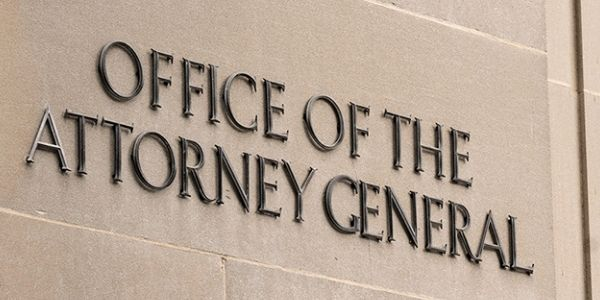Description

Copyright infringement not intended
In News
- The President of India has appointed R. Venkataramani as the new Attorney-General (A-G) for three years.
- Mr Venkataramani will succeed K.K. Venugopal as Attorney-General of India.
ATTORNEY GENERAL OF INDIA
- The Indian constitution under Article 76 has provided for the office of the Attorney General for India.
- He is the highest law officer in the country.
- He is appointed by the President of India.
- He must be a person who is qualified to be appointed a judge of the Supreme Court.
- The term of office of the AG is not fixed by the constitution. Further, the constitution does not contain the procedure and grounds for his removal.
- He holds office during the pleasure of the president.
- This means that he may be removed by the president at any time.
- He may also quit his office by submitting his resignation to the president.
- Conventionally, he resigns when the government (council of ministers) resigns or is replaced, as he is appointed on its advice.
- The remuneration of the AG is not fixed by the constitution. He receives such remuneration as the President may determine.
- The Attorney General is not a full-time counsel for the Government.
- He does not fall into the category of a government servant. Further, he is not debarred from private legal practice.

Duties and Functions
- Advise the Union Government upon such legal matters, which are referred to him by the president.
- Perform such other duties of a legal character that are assigned to him by the president.
- Discharge the functions conferred on him by the constitution or any other law.
- President has assigned the following duties to the AG: To appear on behalf of the Government of India in all cases in the Supreme Court in which the Government of India is concerned.
- He represents the Union Government in any reference made by the president to the Supreme Court under Article 143 of the constitution.
- He appears (when required by the Union Government) in any high court in any case in which the Union Government is concerned.
Rights and Limitations
- While performing his official duties, the Attorney General has the right to an audience in all courts in the territory of India.
- He has the right to speak and to take part in the proceedings of both the Houses of Parliament or their joint sitting and any committee of the Parliament of which he may be named a member but without a right to vote.
- He enjoys all the privileges and immunities that are available to a Member of Parliament.
- Following limitations are placed on the Attorney General to avoid any complication and conflict of duty:
- He should not advise or hold a brief against the Government of India.
- He should not advise or hold a brief in cases in which he is called upon to advise or appear for the Government of India.
- He should not defend accused persons in criminal prosecutions without the permission of the Government of India.
- He should not accept an appointment as a director in any company or corporation without the permission of the Government of India.
https://epaper.thehindu.com/Home/ShareArticle?OrgId=GNHAB8UTL.1&imageview=0
https://t.me/+hJqMV1O0se03Njk9













